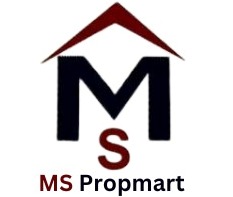Introduction: Sustainability has become a driving force in the real estate industry, shaping the future of construction, development, and property management. In this blog, we'll explore the evolving landscape of sustainable real estate, focusing on trends and opportunities that impact investors, developers, and homeowners.
The Rise of Green Buildings: Green buildings, characterized by energy-efficient design, sustainable materials, and certifications like LEED, have gained prominence. These structures reduce energy consumption, lower operating costs, and contribute to a healthier environment, making them attractive investments for environmentally-conscious buyers and businesses.
Renewable Energy Integration: The integration of renewable energy sources, such as solar panels and wind turbines, into real estate properties has become increasingly common. These technologies not only reduce utility costs but also enhance property sustainability, making them a valuable asset for investors and homeowners.
Smart Home Technology: The adoption of smart home technology has revolutionized the way properties are managed and lived in. These systems offer energy-efficient solutions, improved security, and convenient automation, adding value to homes and commercial spaces while enhancing the quality of life for occupants.
Sustainable Development Practices: Sustainable development practices encompass various strategies, including brownfield redevelopment and transit-oriented development. Brownfield redevelopment transforms contaminated or underutilized sites into vibrant, eco-friendly communities, while transit-oriented development promotes walkability, reduces reliance on cars, and minimizes urban sprawl.
Eco-Friendly Communities: Sustainable communities prioritize green spaces, pedestrian-friendly layouts, and efficient public transportation. These eco-friendly neighborhoods offer healthier living environments, reduced carbon footprints, and increased property values, making them a desirable choice for both residents and investors.
Economic and Environmental Benefits: Sustainable real estate offers both economic and environmental benefits. Property owners can enjoy reduced operating costs through energy-efficient features, while simultaneously contributing to environmental conservation and reducing greenhouse gas emissions. As a result, property values may appreciate, creating long-term financial gains.
Regulatory Incentives: Government incentives and regulations play a significant role in promoting sustainable real estate. Tax credits, grants, and zoning ordinances encourage developers and homeowners to adopt sustainable practices, further enhancing the appeal of eco-friendly properties.
Investment Opportunities: Investing in sustainable real estate presents numerous opportunities for financial growth. As sustainability becomes a core consideration for buyers and tenants, properties with green features can command higher rental rates and resale values. Additionally, sustainable investments align with ethical and environmental values, attracting socially-conscious investors.
Conclusion: Sustainable real estate is no longer a trend; it's a fundamental shift shaping the future of the industry. By staying informed about these sustainability trends and opportunities, you can make informed decisions that benefit both the environment and your financial portfolio.

.jpg)